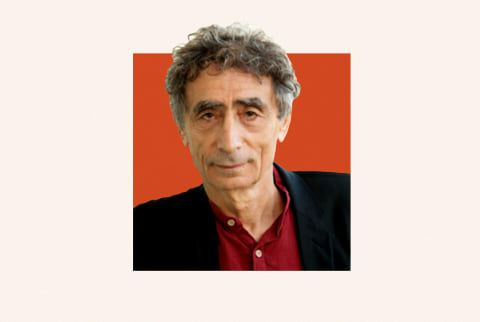It’s a concept physician and renowned speaker Gabor Maté, M.D., bestselling author of The Myth of Normal, sees all the time (and has personally dealt with). “As a family physician and a palliative care doctor, I began to notice that who got sick and who didn’t wasn’t accidental. People’s emotional traumas in childhood had a significant resonance in their adult illnesses,” he shares on this episode of the mindbodygreen podcast. “Whether we’re talking about chronic fatigue or other autoimmune conditions, like rheumatoid arthritis, multiple sclerosis, or malignancy, depression, anxiety, or psychosis, I began to notice that those illnesses were not random strokes of bad luck, but they were outcomes of a process that had begun with childhood adversity.” So the question becomes: How do you identify trauma that’s not exactly yours? The thing is, it actually starts with looking inward. “The more people understand their own traumas, the more [they] see with clear eyes the traumas of others,” says Maté. “The nervous system has a memory in it that is not necessarily conscious, but the wound will still show up in the present moment.” That’s why Maté likes to ask folks about the last time they were upset with somebody. “Most of the time people are upset, it’s about something else,” he says. “It’s easy for me to tell about somebody’s childhood trauma if they tell me the last time they were really upset with somebody in their lives. Usually, it’s about old stuff.” At the risk of sounding like a broken record: Human beings are social creatures; we are averse to loneliness. That’s why extreme loneliness is considered a risk factor for mortality1, says Maté. “When you’re lonely, you are likely to get sicker faster and to die quicker of your disease.” Moral of the story? Focus on quality social connections. In fact, you might unconsciously attract people into your life with similar traumas, says Maté. “We always find somebody at the same level of traumatization, which means that in a good relationship, people can grow up together,” he notes. You don’t want to foster any codependency, but if both of you are open and willing to heal those traumas together, Maté says that’s a wonderful opportunity. So what happens? Well, according to Maté, people receive messages in early childhood that in order to be acceptable, they have to be compliant. “They have to suppress their own will, their own needs, their own perspective, and they have to serve others,” he says. As a result, they feel uncomfortable saying no as they grow older. Now, this is problematic, because if you don’t know how to say no, “your yeses don’t mean a thing,” says Maté. If you begrudgingly say yes to a task, you can also grow resentful, which can have physiological impacts on your body. “Furthermore, you’ll be tired afterward because you’re already tired to start with,” says Maté. “So, not saying no has impacts on you.” Consider it your sign to set good, healthy boundaries.



